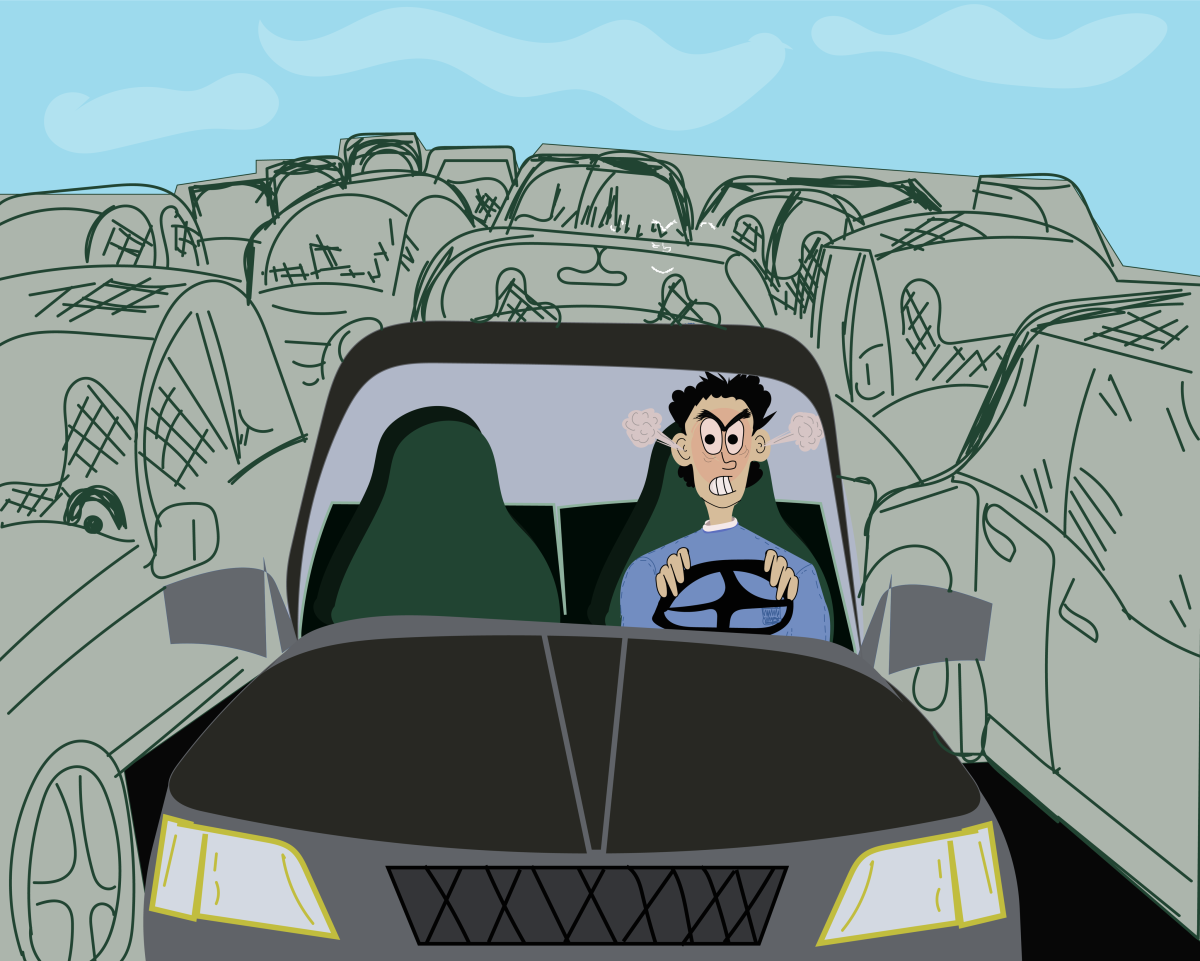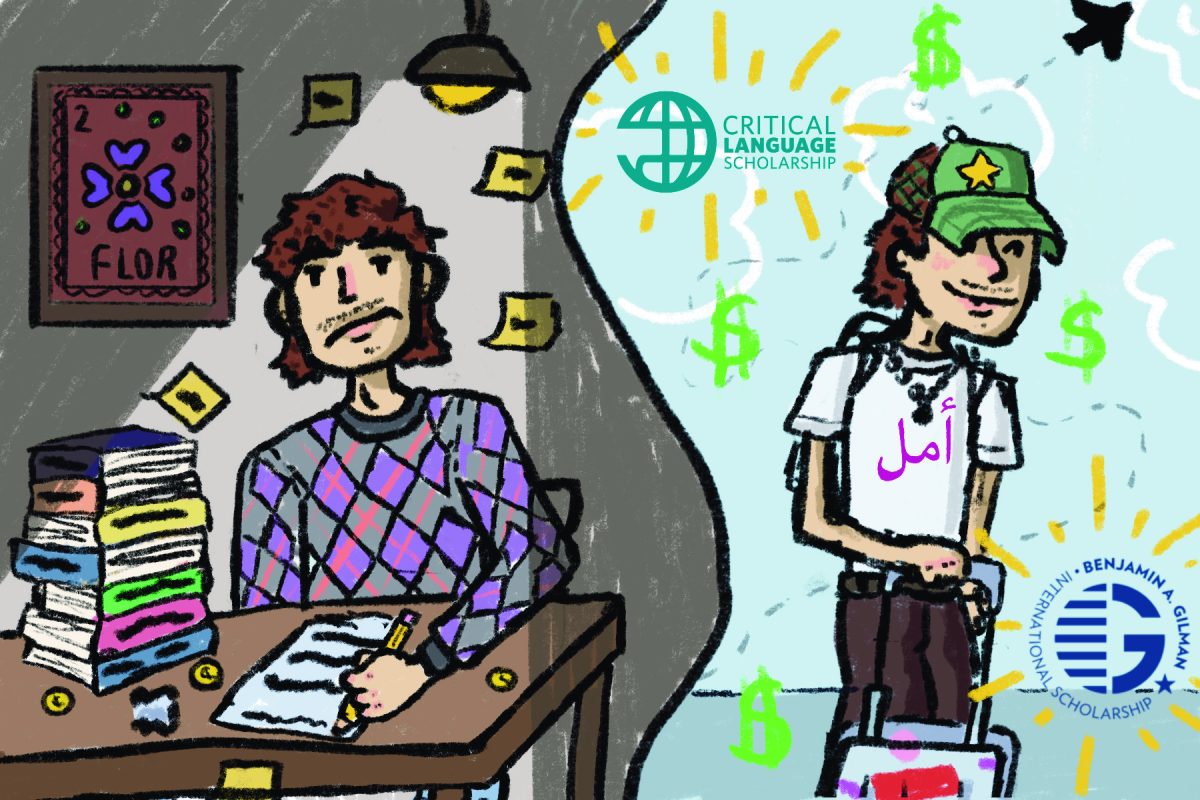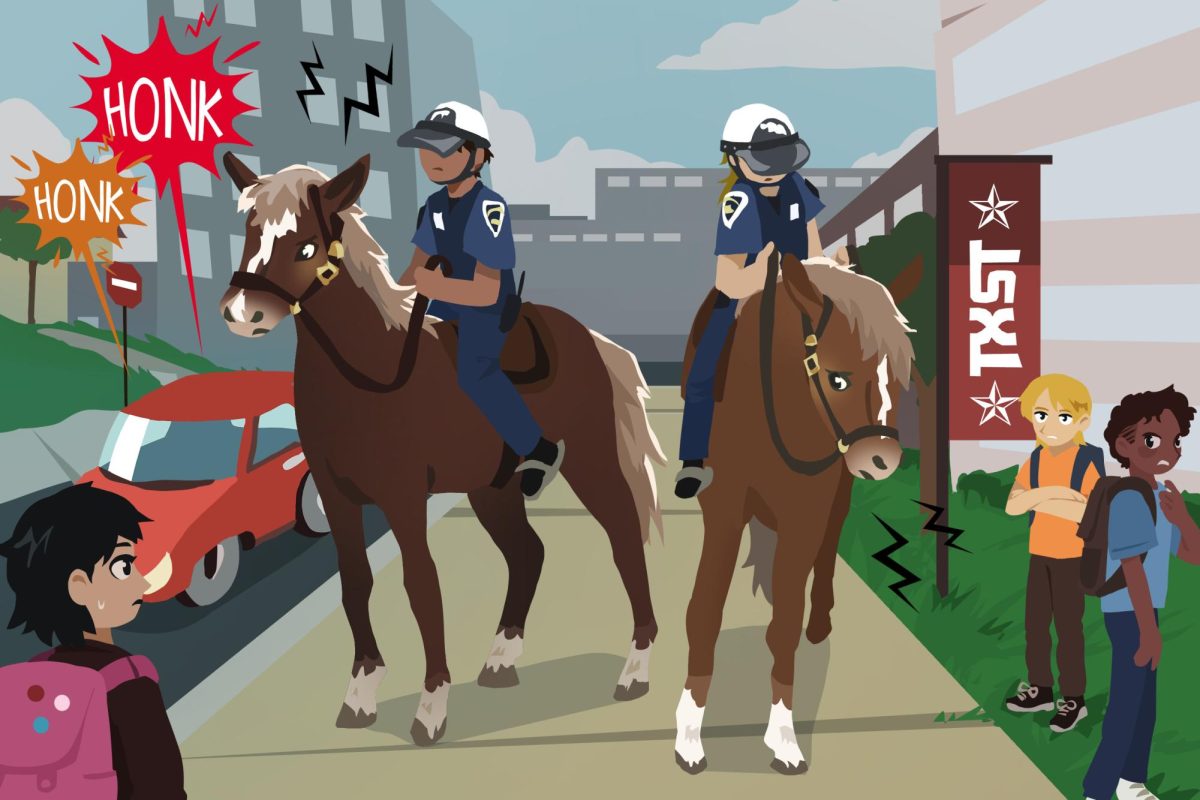If you’re a frequent driver, you may have noticed that gas prices are on the rise. As much as we complain, most of us are unable to do anything besides make space in our budgets for the rising cost of gas, whether that means cutting back on other purchases, charging to a credit card, borrowing money or asking friends for rides.
That is because Americans are dependent on their personal cars to get from place to place, despite gas costs or, to the nuisance of students, the costs of a parking permit.
Unfortunately, this dependency is causing a host of problems for Americans, including increasing inequality, worsening mental and physical health and damaging the environment.
Car dependency widens economic inequality. Those who cannot afford a car and all the maintenance it requires find their employment options limited to what they can reasonably access by foot or public transit.
This is less of an issue in areas with excellent public transportation, but in Central Texas, the public transportation system is spotty at best. That leaves marginalized groups, such as the poor and the disabled, to not have greater access to better jobs and needed services.
Reporting by Brookings, a nonprofit public policy organization, revealed that nearly all zero-vehicle households live in areas with public transportation systems. However, the routes those systems travel to only provide access to 40% of jobs within a 90-minute commute.
In addition, car dependency adds greatly to the phenomenon of food deserts, which affect 23.5 million people. Food deserts are areas that have limited access to affordable and nutritious foods. People who live in food deserts often have lower incomes and, as a result, are unable to purchase and maintain a car.
The ability to afford a car and purchase nutritious foods are often intricately linked. While some organizations are working to offer solutions, such as bus stop farmer’s markets, these solutions are not widespread yet and often do not solve the systemic issues created by this epidemic.
Also, car dependency has a negative effect on mental and physical health. Commutes are an often reviled part of American work life. Those who discuss their distaste for their commute often find things such as traffic, expensive parking and time spent away from their families to be a drain.
The commute and its downsides are reflected in our health. TIME Magazine reports commutes as short as 10 miles each way are associated with higher blood sugar, cholesterol, blood pressure along with greater tendencies of experiencing depression, anxiety and social isolation.
The construction of our roads in America often leads to poor or nonexistent sidewalk placement for those who walk. This results in hazardous conditions for pedestrians, and these conditions are only worsening. The Governor’s Highway Safety Association found that pedestrian fatalities per billion vehicle miles traveled saw a 21% increase in 2020, rising from 1.9 deaths in 2019 to 2.3 deaths in the following year.
Additionally, pedestrian fatalities between the years 2010 and 2019 increased by 46%, in comparison to a 5% increase of all other traffic deaths. The Governor’s Highway Safety Association also believes better infrastructure for pedestrians and safer road crossings will reduce these accidents, but until then, the risk involved in walking on unsafe roads encourages most Americans to invest in cars, which will only worsen many issues experienced by drivers.
Furthermore, American car dependency has taken a toll on our environment. Since 2017, driving has been America’s largest source of greenhouse gas emissions. This statistic is worsened by the fact that more than 75% of Americans drove alone to work, which results in more cars on the road, and more greenhouse gas emissions, as each car emits an average of 4.6 tons of CO2 a year, which is roughly the same as the total yearly emissions of someone living in France.
Americans also lag behind electric car sales; in 2020, 2% of new cars sold in America were electric, in comparison to 73% of new cars in Norway. America’s car habits are not only making Americans sick, but it’s also making the planet sick.
Many European countries are significantly less dependent on cars. While there is a multitude of reasons for this, ranging from America’s urban sprawl to Europe’s better-funded public transit system, numbers show that European countries even have a higher rate of children walking or biking to school than the U.S.
However, some American cities are experimenting with changing the usage of cars on their streets. In 2020, over two miles of Market Street in San Francisco was made “car-free.” The hope of the implementation of a car-free street was to improve pedestrian safety.
American car dependency is arguably not the fault of consumers, but of zoning issues, urban sprawl and underfunded privatized public transit systems. However, some may think our dependency on cars is not an issue at all and believe having a car is a symbol of freedom and independence.
However, the degree to which we rely on cars in America is the opposite of freedom. Drivers are subjected to sudden changes in gas prices, random traffic occurrences, the ever-changing availability of parking spaces and other uncontrollable variables they must buy into.
While I do not think the solution is to abandon cars entirely, I believe reducing car usage in exchange for increased funding for public transit and zoning for walking and biking will offer a wider range of options that will provide Americans their true freedom in regard to transit.
– Tiara Allen is a marketing senior.
The University Star welcomes Letters to the Editor from its readers. All submissions are reviewed and considered by the Editor-in-Chief and Opinion Editor for publication. Not all letters are guaranteed for publication.
Opinion: Gas prices are one of many ways car dependency hurts Americans
March 10, 2022
Donate to The University Star
Your donation will support the student journalists of Texas State University. Your contribution will allow us to purchase equipment and cover our annual website hosting costs.

























